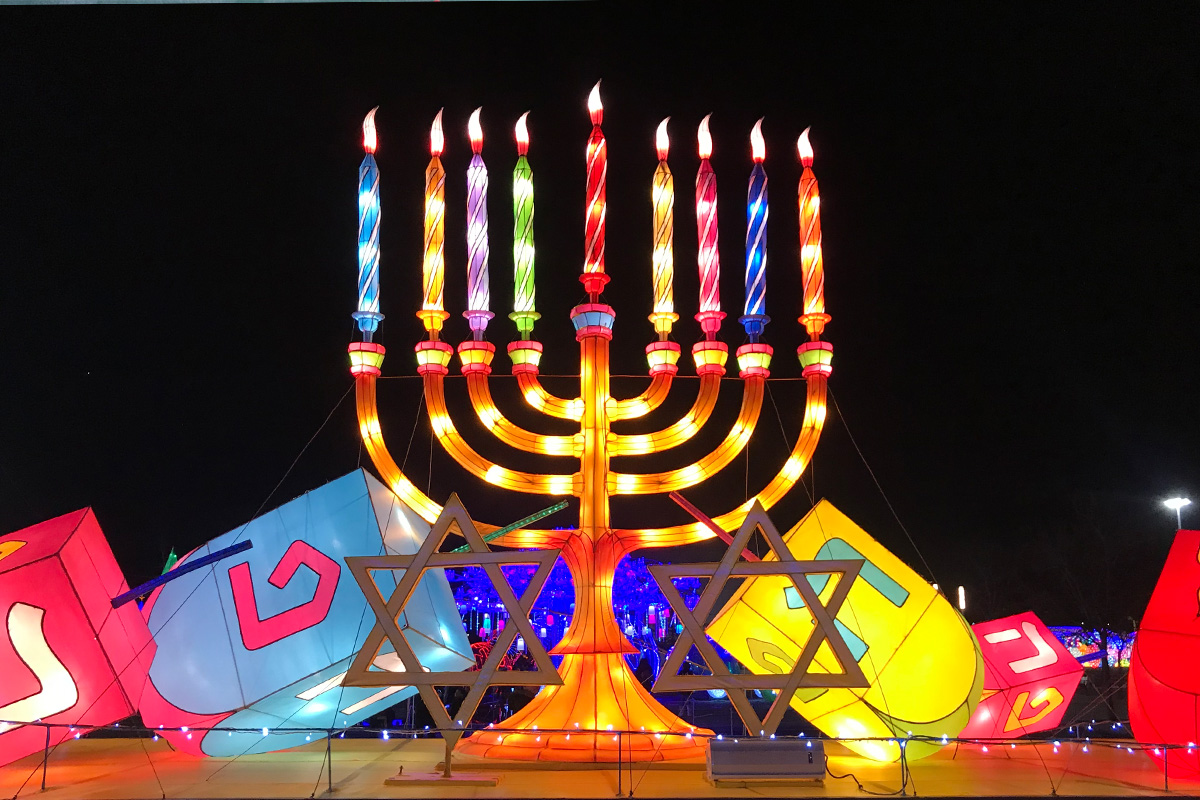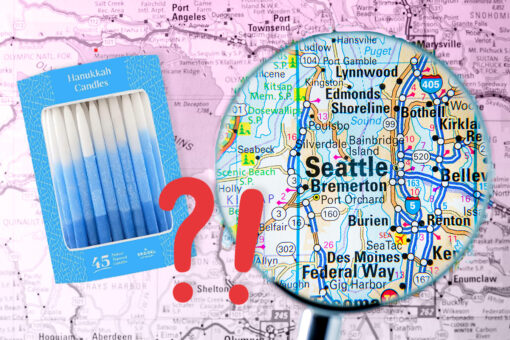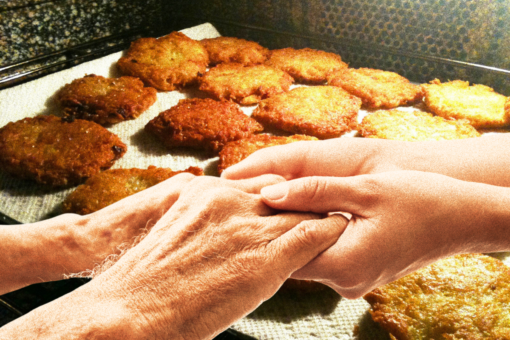Some people in the Jewish community have remarked (in sermons, editorials, Twitter rants, etc.) in a somewhat bemoaning tone that Hanukkah has become a very large holiday among American Jews. Of course, this is due almost entirely to its proximity to Christmas — as Christmas has become a larger holiday in the public consciousness, so has the minor, from a traditional halachic standpoint, festival of Hanukkah, which often coincides with the larger holiday season.
Besides the tradition of Jewish parents attempting to envelope their children from so-called Christmas envy, the large number of interfaith and intercultural families among American Jews has surely also helped create a market for the Hanukkah version of whatever is popular among those acquainted with the Christmas festivities. It can seem that everyone in the Jewish world has an opinion on what is and isn’t appropriate to do with the celebration of Hanukkah. I like wreaths, but for some that’s a no go. I don’t understand the need for pajamas and Hanukkah gnomes, but for others that’s what it means to be festive during this time of year.
However, instead of looking at this majoring of a minor holiday in a negative light, why not try to take the success of Hanukkah and apply it to other Jewish occasions? Why not try to Hanukkah-ize other so-called minor holidays, such as Purim? What about even trying to Hanukkah-ize major (again, from a traditional point of view) festivals that have fallen out of public consciousness for many, if not most, American Jews? Over-the-top Sukkot or Shavuot, anyone?
I am far from the only person who suggests this. One of the top Google searches for food items last year was “hamantaschen,” the delicious (in my opinion) triangular shaped cookie associated with Purim (baruch Hashem, you can eat it year-round, as I like to, as well). Perhaps we’re already on our way to engaging the broader, mainstream culture with our holiday traditions and customs, as has been successively done with Hanukkah.
An ex of mine used to laugh when I would spit out story lines while we had autumn and Christmas-themed Hallmark movies with the volume turned low in the background. Instead of going with the traditional pumpkin patch or corn maze or coming home for Christmas only to find love motifs, constantly recycled with slight details added or changed, I would instead create stories about finding love at Purim, or Passover, or that special moment Rebecca’s fingers grazed across Jacob’s knuckles as he reached for the hammer to attach the sukkah frame.
Of course we were joking, and part of the joke is that every holiday film on Hallmark, like every non-holiday Hallmark film for the past seven or eight years, seeks to turn every holiday’s meaning into finding romantic love. Perhaps nobody should be alone at Christmas, but traditionally you should be with family, not necessarily a romantic partner. However, if this is the mood of the zeitgeist, then why not add a Jewish flavor to it?
Part of the allure of this idea is making Jewish observance, celebration of holidays specifically, mainstream and something to be embraced by Jews of all generations, in particular the increasing number who have not had much of a Jewish education and who some in the world of American Jewish institutional life easily write off as being rootless or disappearing into assimilation.
Many Jews readily identify as such (being Jewish) with positive feelings, and the concept of doing Jewish has been embraced as a motto and solution in institutional life for some time. It’s just finding the time and opportunity to Jewishly do, and the realization that the doing might not correlate at all with attending services at temple. Furthermore, many Jews love not only doing Jewish, but they love doing Jewish like they love doing anything: with those who mean the most in their lives, often non-Jews.
Hanukkah has become part of the American holiday experience tradition, and this author certainly has some criticisms of how that is carried out. However, instead of arguing, hand-wringing, or sighing at the way Hanukkah has become so mainstream — and perhaps the meaning of the holiday is (more than) occasionally lost in the spotlight — I for one want to embrace this moment and see if it can be applied to the rest of the Jewish calendar, our neglected holidays most of all.
Without a major, commercial Christian or national holiday to compete with, it may be more difficult to create an enthusiastic audience. However, without that competition, the messages of other holidays could be less likely lost on those acknowledging the holidays. And those American Jewish families embracing Hanukkah as an ever-larger holiday might very well be the same audience most wishing to experience and long for more of that holiday magic outside of December.
See you on Tu Bisvhat?



